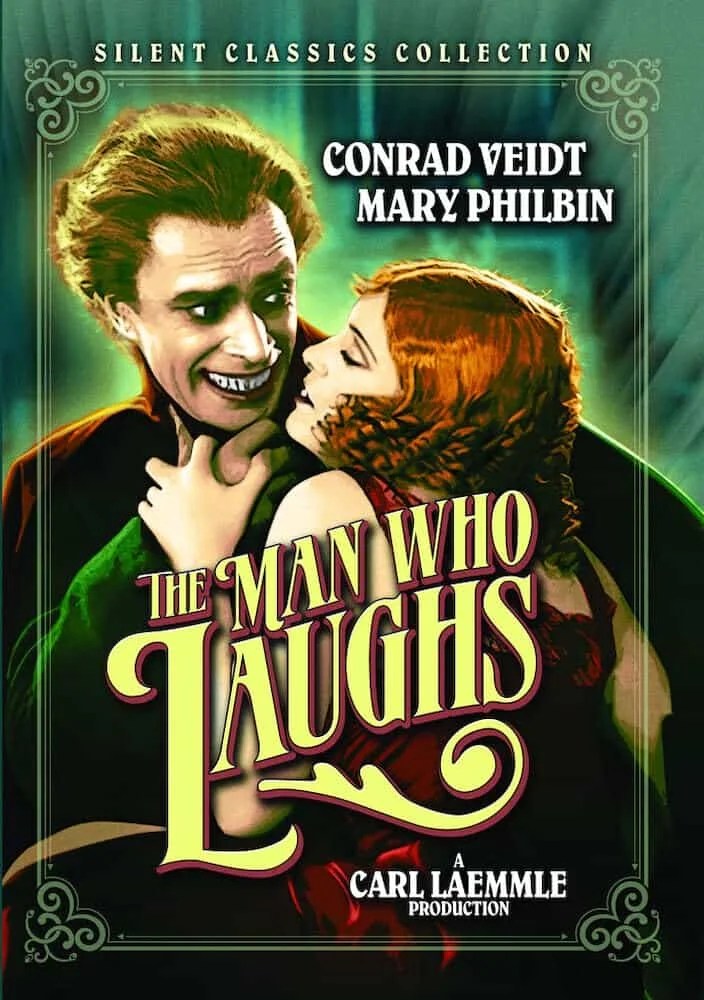
Long considered a “lost” gem of the silent film era, The Man Who Laughs has been beautifully restored in this Silent Classics Collection DVD edition. The film, adapted from a lesser-known novel by Victor Hugo, tells the poignant story of Gwynplaine, a nobleman who, as a child, is cruelly disfigured with a permanent grin and forced to work as a strolling player.
The story revolves around the extraordinary life of Gwynplaine (Conrad Veidt), whose grotesque grin would later inspire DC Comics’ legendary Batman villain, the Joker. Veidt’s portrayal of Gwynplaine has become iconic among cinephiles. Orphaned as a child, Gwynplaine is punished by the king for his father’s sins by having his face carved into a hideous grin. Disfigured and isolated, Gwynplaine saves a blind girl named Dea (Mary Philbin), and they eventually become performers in a sideshow, where they fall in love. Dea, unable to see, remains unaware of Gwynplaine’s tormented smile.

Masterfully directed by Paul Leni, The Man Who Laughs stands as Leni’s penultimate work. Growing up in Germany during the Expressionist era, Leni employs haunting characters, twisted sets, sharp angles, and deep shadows. Celebrated as one of the finest American silent films emulating German Expressionism, The Man Who Laughs showcases Leni at his directorial zenith. Originally released as a silent film, it was successful enough for Universal in 1928 to warrant a re-release with a synchronized musical score using the Movietone sound-on-film process, which is presented here as a secondary audio track.
The film is both stylistic and fast-paced, capturing viewers with its breathtaking visuals and powerful performances. Conrad Veidt delivers a heart-wrenching portrayal of the tragic Gwynplaine, a feat made even more impressive given that he could only express emotion through his eyes due to the dental appliances that held his face in a grotesque smile.

Mary Philbin is touching as the blind Dea, and Olga Baclanova, playing a spoiled Duchess attracted yet repulsed by Gwynplaine, adds a layer of sexual tension to the narrative. Brandon Hurst embodies a sinister blend of humor and malevolence as the jester-adviser responsible for Gwynplaine’s plight. The film maintains a brisk pace while weaving its compelling story, though purists of Hugo’s novel may object to the film’s relatively happy ending. Nevertheless, this adaptation is a remarkable interpretation of Hugo’s work and is highly recommended.
Every element, from the camera work and set design to the performances (the scenes with Conrad Veidt and Mary Philbin are particularly magical), cements this film’s place alongside other silent masterpieces like Sunrise or Metropolis. From the opening scenes in the royal boudoir and the secret torture chambers. Each minute introduced new characters—some beautifully melancholic, some despicably corrupt—but always fascinating, their expressions impeccably captured by the silent camera. I cannot recommend this film highly enough.
Discover more from Sandbox World
Subscribe to get the latest posts sent to your email.


